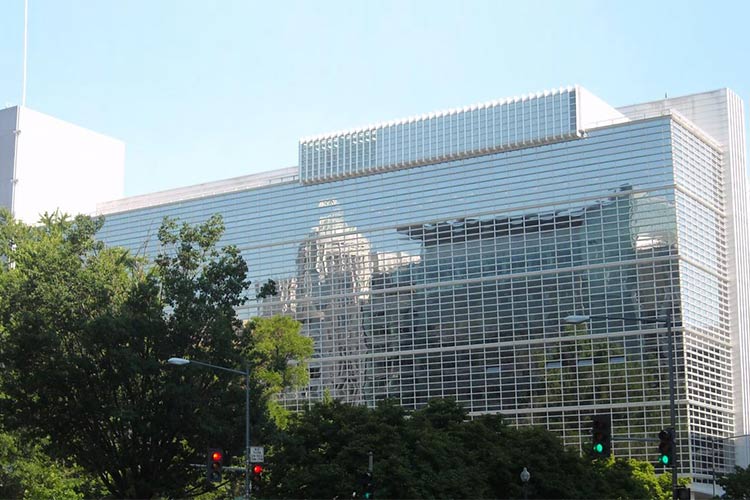Following its strong recovery in 2021, the Montenegrin economy is again facing headwinds that are coming both directly, like effects of the war in Ukraine on tourism, and indirectly, through the broader shock to business and investment confidence among Montenegro’s main trading partners. As a result, well-considered policies must be implemented
Montenegro is still recovering from the pandemic, but is facing renewed headwinds. While the economy recovered strongly in 2021, growing at a rate of 12.4%, it still remains below the 2019 level and is now facing new challenges – says Christopher Sheldon, World Bank Country Manager for Bosnia-Herzegovina and Montenegro.
The outbreak of the war in Ukraine, coupled with associated developments, worsens the outlook for Montenegro’s economy, which we now expect to grow by 3.6% in 2022, down from an estimated 5.9% prior to the start of the war.
“The main direct transmission channel of the war to Montenegro’s economy is tourism, while indirect effects come from the broader shock to business and investment confidence across Europe and the effect of the crisis on Montenegro’s main trading partners”, notes our interlocutor. Expected tourism declines due to the war are expected to slow exports and private consumption, which is still projected to remain strong thanks to the positive effects of higher disposable incomes and the recovery of employment levels. Despite significant improvements in 2021, public debt remains at high levels and calls for strong fiscal and debt management, particularly with regard to the expected tightening of financing conditions.
Under the new circumstances, how does the “Europe Now” reform programme fit into the growth agenda?
– This programme has the potential to increase formal employment and economic growth and reduce inequalities over the medium term, especially if complemented by additional structural reforms. However, it also poses significant fiscal risks. The Parliament rejected several of the programme’s measures aimed at offsetting the loss in revenue resulting from the abolished health contributions.
These include increases in excise duties on tobacco, alcohol and sugary beverages; and the introduction of excise duties on sugary products and single-use plastic. The Parliament also maintained the reduced VAT rate of seven per cent for the hospitality industry, which was introduced as a crisis mitigation measure. Failure to adopt compensating revenue measures is likely to result in a wider-than-planned fiscal deficit in 2022, with possible adverse consequences for the following years, and consequently on public debt.
How could current inflation trends impact the Montenegrin government’s ability to respond to price increases without being able to use central bank measures as part of its response to rising inflation?
– The cost of living is on the rise around the world, as major global economies face the highest inflation in decades. These increases have been led by post-COVID supply chain disruptions coupled with rising demand, and they are being further exacerbated by the impact of the Ukraine war on the global economy through higher commodity prices, particularly of food and energy. In the U.S., inflation is hovering near a 40-year high and the U.S. Federal Reserve has already reacted by increasing interest rates. Inflation in the euro zone has hit a record high for the sixth consecutive month, reaching 7.5% in April, and the European Central Bank is likely to increase rates during summer.
The World Bank works continuously with the authorities to support policies that can improve the living standards of Montenegrins, especially for the poor and vulnerable
As you rightly pointed out, Montenegro uses the euro as its currency, so it doesn’t have independent monetary policy instruments and is thus greatly affected by the ability of the European Central Bank’s policy reactions to tame inflation. In the absence of its own monetary policy, Montenegro relies on fiscal policy and structural reforms to maintain flexibility, macroeconomic stability and the ability to respond to shocks, including inflationary shocks. However, with limited fiscal space, Montenegro must carefully weigh the costs and benefits of the policies it applies in response to higher prices.
How, then, can fiscal policy alleviate the negative effects of inflation and ensure macroeconomic stability?
– Global inflationary pressures are accelerating domestic inflation – in April, Montenegro’s inflation reached 11.2%, driven by rising prices of food, beverages and transportation.

And while price rises hit everyone, the lowest-earning and poorest households are particularly hard hit by the rise in prices of food, petrol and other essentials. As such, policy measures to alleviate the effects should target the most vulnerable.
However, real disposable income has largely been preserved through an increase in net wages thanks to the Europe Now reform. The average net monthly wage in March reached €704, marking an increase of 22 per cent year-on-year in real terms. Montenegro also adopted other fiscal policy measures to combat the negative impacts of the crisis: it reduced excise duties on petrol, introduced a zero VAT rate on flour and sunflower oil, and adopted a law on limiting the prices of products deemed essential to human life and health, which provides the government with the legal framework to act promptly in the case of emergency. Still, the fiscal space is limited and policy measures should be timebound and target the most vulnerable.
To what extent has the government been able to adapt to challenges in the tourism sector?
– While tourism was the main culprit for the economic downturn of 2020, it was also the main driver behind the economic revival of 2021. Reviving tourism, exports and private consumption led to growth of 12.4% in 2021, with tourism revenues reaching 70 per cent of their 2019 level, up from just 13 per cent in 2020. However, as I have already mentioned, the outbreak of the war in Ukraine and associated developments have significantly worsened the outlook for Montenegro, primarily through tourism – given that tourists from Russia, Ukraine and Belarus account for almost a quarter of all overnight stays.
Montenegro’s major comparative advantage – tourism – requires that the country accelerates its green transition, improves waste management and invests in green infrastructure
In the current environment of high uncertainty, and in such a short period of time, it’s unlikely to expect to fully compensate for anticipated losses from these countries with tourists from other countries, and especially in such a short period of time. Nevertheless, Montenegro has intensified marketing activities directed towards other key markets, which – together with an observed surge in global tourism activity – might partially offset the negative impacts of the war.
Still, current external challenges aren’t the only ones affecting tourism. Tourism requires special attention, as its growth is more vulnerable to environmental degradation and climate change―environmental degradation has polluted beaches and natural sites, thereby undermining demand for tourism, and many tourism hotspots will be hit by the effects of climate change.

The forthcoming World Bank growth study of Montenegro – Country Economic Memorandum – looks at challenges facing Montenegrin tourism and provides specific recommendations to address them and to ensure a more resilient, sustainable and green tourism that will continue to power Montenegro’s growth.
How do you see the role of the World Bank in these new circumstances, and how that they influenced the focus of your intervention?
– The World Bank is continuously working with the authorities in support of policies that can improve the living standards of Montenegrins, especially for the poor and vulnerable. This includes ensuring macroeconomic stability and fiscal sustainability, and specific policies in many different sectors, including agriculture, environmental protection, tax administration etc. At the same time, the Bank is also providing technical expertise and assistance to improve the pension, public administration and tax systems. We are currently completing the aforementioned Country Economic Memorandum growth study, which will be published in July and will provide recommendations for Montenegro to accelerate its growth and make it more inclusive and sustainable.
Despite significant improvements in 2021, Montenegrin public debt remains at high levels that call for strong fiscal and debt management, particularly with regard to the expected tightening of financing conditions
As has always been the case, and particularly in challenging times like today’s, the World Bank stands ready to support the government of Montenegro by providing technical, international best practice expertise in designing and implementing critical structural reforms, including through potential development financing operations that support ambitious reform programmes and provide financing under favourable terms.
How do current challenges impact long-term policies like green transition?
– In the context of the energy crisis in Europe, our 21st Western Balkans Regular Economic Report, published earlier this month, provides an assessment of the vulnerability of the Western Balkan countries, including Montenegro, to energy price shocks, measures adopted by the governments to mitigate impacts, and how the crisis can affect the green energy transition going forward.
Across Europe and around the world, there are signs that, in the short and medium term, the current energy crisis might slow down green energy transition. But, at the same time, the energy crisis has boosted interest in clean energy sources and energy efficiency, as a means of diversifying the supply mix and enhancing energy security. And Montenegro has a comparative advantage precisely when it comes to clean energy from hydro, solar and wind, which is also a major growing European market that can help Montenegro diversify its goods exports. Furthermore, Montenegro’s major comparative advantage – tourism – requires that the country accelerates its green transition, improves waste management and invests in green infrastructure, because the quality of its tourism offer – and its sustainability over time – will in large part depend on maintaining a pristine environment. The analysis of, and recommendations for, more resilient and sustainable growth is further discussed in the aforementioned growth study that the Bank will publish in July.
| CONSTRAINTS With fiscal space limited, Montenegro must carefully weigh the costs and benefits of the policies it applies in response to higher prices | SUPPORT The World Bank stands ready to support the government of Montenegro by providing technical, international best practice expertise in designing and implementing critical structural reforms | CONCERNS Tourism requires special attention because its growth is more vulnerable to environmental degradation and climate change |
|---|